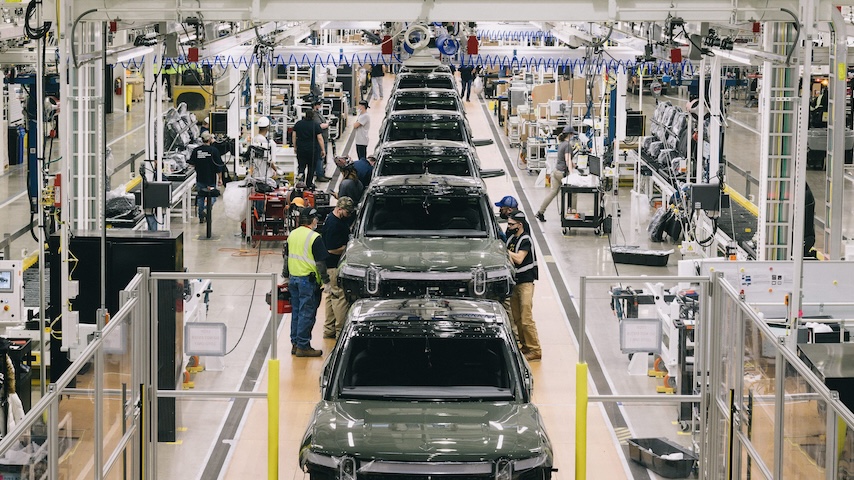Is a Six-Billion-Dollar Loan for a Georgia Electric Vehicle Plant a Sliver of Hope for Climate Policy?
Photo via Rivian
As we have covered here before, the incoming president’s stated climate policy platform is to make everything about the problem worse. He wants to pull out of the Paris Agreement again, roll back various executive orders and undermine if not outright repeal the Inflation Reduction Act, eliminate subsidies and other carrots for clean energy development, and so on. The only thing really stopping him is inertia and momentum, and, maybe, billions of dollars in government money flowing to red states and districts.
That’s the theory at least partially behind an apparently-fast-tracked $6.57 billion loan from the Department of Energy to Rivian, to help the company build a massive electric vehicle factory about an hour east of Atlanta. The loan, when finalized, would be locked in likely regardless of any Trump administration moves; getting that done before January 20 seems like a solid plan.
-

-

-

-

-

-

-

-

-

-

-

-

-

-

-

-

-

-

-

-

-

-

-

-

-

-

-

-

-

-

-

-

-

-

-

-

-

-

-

-

-

-

-

-

-

-

-

-

-

-

-

-

-

-

-

-

-

-

-

-

-

-

-

-

-

-

-

-

-

-

-

-

-

-

-

-

-

-

-

-

-

-

-

-

-

-

-

-

-

-

-

-

-

-

-

-

-

-

-

-

-

-

-

-

-

-

-

-












































































































